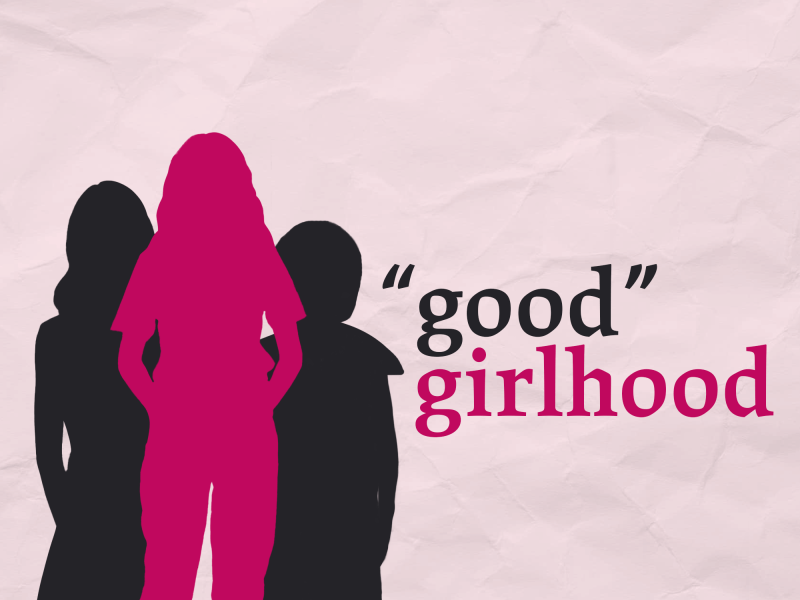Editor’s Note: This article is a review and includes subjective thoughts, opinions and critiques
One tragedy of being human is the impulse to try to hold on to the inherently ephemeral. This habit is futile because time, youth, memories and life are fleeting.
Céline Sciamma’s “Girlhood” exemplifies this tension. Written and directed by Sciamma and set in a housing project on the outskirts of Paris, the film chronicles 16-year-old Marieme/Vic’s (Karidja Touré) friendship with Lady (Assa Sylla), Adiatou (Lindsay Karamoh) and Fily (Mariétou Touré). It is a multilayered look at how socioeconomically disadvantaged Black girls are integral to — and yet peripheral — in life at home and in the wider world.
They are working-class teenagers coming of age in a world that is indifferent to girls like them. Their neighborhood is rife with small gangs of girls that refract the violence directed at them onto each other.
The story is told in a series of vignettes. In the first act, Marieme moves through the world with restraint. There is a relatively strict hierarchy at home: Her mother works nights as an office cleaner and Marieme and her younger sister split cooking, cleaning and caregiving for their youngest sister. As the eldest daughter, Marieme bears the brunt of their ne’er-do-well brother’s physical abuse to protect her younger sisters.
On the day she meets Lady, Adiatou and Fily, Marieme receives news from a faceless administrator that she has failed out of school again and should begin looking into vocational programs. Marieme protests that she simply wants to finish high school and be “normal.” However, the trio offers her something better — the chance to feel powerful if she’s willing to fight for it.
Fighting is not just a figure of speech. While most of their activities include finding places to hang out and hold turf, territory must be defended and several brutal fights ensue between the girls and their adversaries.
Lady is the self-styled leader of their pack who can be affectionate and mean in one breath. She is also a tastemaker — in one scene she casts her discerning eye onto fellow pedestrians during a walk through the mall and rates their outfits. Lady becomes a surrogate mother and gives Marieme lessons in styling, self-determination and standing up for herself against her brother.
Marieme blossoms under Lady’s tutelage. She abandons her braids and dons the long straightened hairstyles favored by the gang-affiliated girls in the neighborhood. Her wardrobe changes and so does her name. Lady nicknames her Vic — a moniker meant to signify victory.
Vic becomes an integral member as shown by her ability to successfully bully a girl into giving her money. Karidja Touré is sensational in this scene. Immediate regret flashes across her face once the girl is out of view but she blinks away her reservations and triumphantly marches back to Lady, Adiatou and Fily. Vic becomes so fluent in violence that she forgets how to communicate using less severe language.
The foursome are all putting on tough girl acts and embodying the roles of braggadocio brutes when confronting rival gang members. The girls burst into laughter once their foes are out of view. Despite the constant teasing, they are affectionate and tender with one another. During a spirited round of mini-golf, Adiatou passionately yells about fairness to ensure Fily encounters the same obstacles. Once Fily successfully sinks a shot, Adiatou bursts into tears. The girls laugh at her before rallying to provide comfort.
Sciamma artfully deploys pan and scan shots to give the film the feel of a documentary, as if we are privy to something real. The use of sound is similarly arresting — peals of laughter and chatter fade as abruptly as they become audible and quiet moments suddenly become loud. Frequent Sciamma collaborator Jean-Baptiste de Laubier’s haunting score serves as transition music between each act and sometimes drowns out the dialogue. The suggestion is that we’re free to look, but we couldn’t possibly understand what these girls are saying.
Despite the brutality of the world they inhabit, Sciamma treats her characters with great care. Moments of joy are reflected in pivotal dance scenes. The girls rent a hotel room to have a sleepover and after dressing up in clothes procured via five-finger discount, Rihanna’s “Diamonds” begins to play. They lip sync and dance spiritedly — for each other and for themselves. This was one of the first scenes Sciamma wrote, and she shot it without procuring the rights. After sending the scene to the singer’s team during post-production, they gave her the green light to keep it in the film.
During the final act, Vic descends into the underground economy. She works for a boss who seems congenial enough but shows his desire to exploit her. She experiments with her gender presentation to keep herself safe in this new life and a dance at a party provides some insight into her feelings. The ending is somewhat ambiguous, a fact that disappointed me when I first saw the film but that I have grown to love with subsequent viewings. Whether it’s the fear of giving up girlhood or entering the unknown world of adulthood, Marieme/Vic seems to know that holding on to a moment that has passed can hold you back from going forward.
